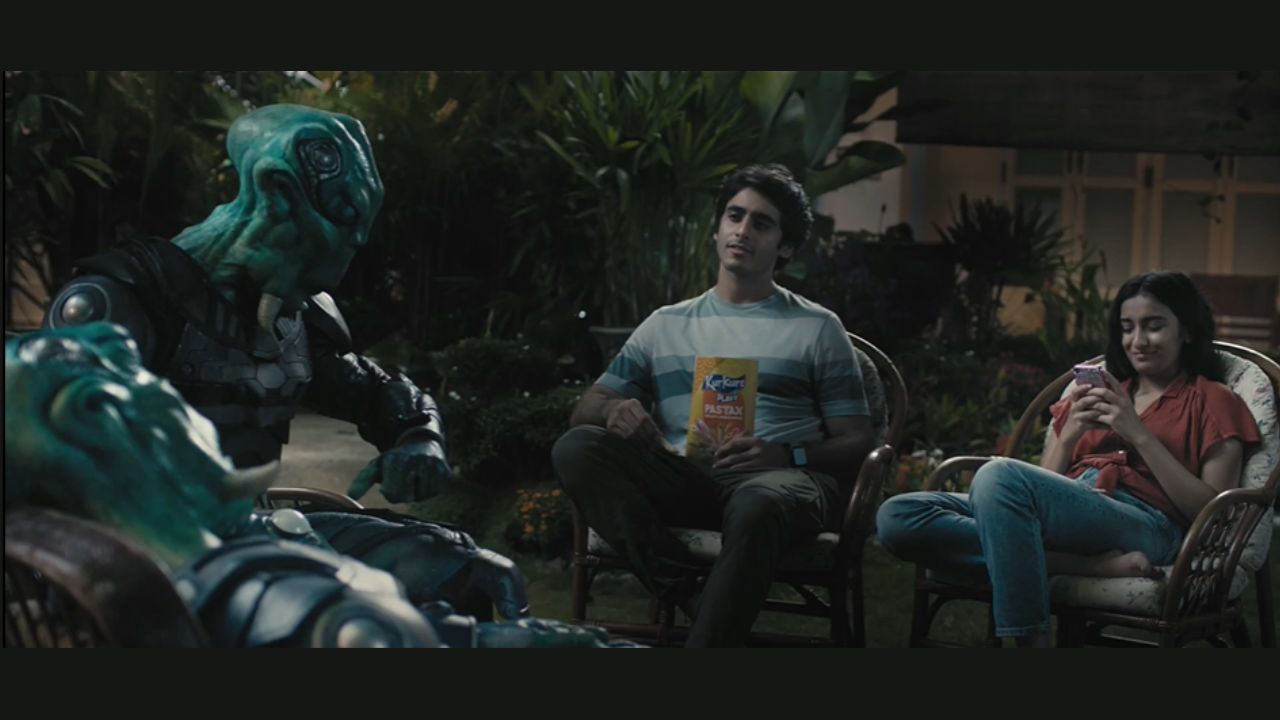Kurkure, a ‘made in India’ product and PepsiCo’s major play in the snacking portfolio over the years, is eyeing to connect with Gen Z consumers by launching a sub-brand Kurkure Playz that caters to the growing soft texture category.
Made by advertising agency Leo Burnett, the new ‘Halke Mein Lo’ campaign promoting the new sub-brand encourages the youth to take a lighter approach to life by adding a dose of fun to any situation. The spots feature a young protagonist and his family being greeted by unexpected guests who scare the wits out of the entire family. But a bite of the Kurkure Playz Puffcorn and Kurkure Playz Pastax transform the youngster’s fear into a take-it-easy “Halke Mein Lo” attitude, leading him to make witty wisecracks diffusing an intimidating situation into a laughing riot.
Focus on GenZ generation
Talking to Storyboard18, Neha Prasad, associate director and brand lead, Kurkure shares that in the past couple of years, there’s been a positive outlook towards the salty snacks market as it’s been growing at an increasing rate.
“Snacks were viewed as the perfect companion for consumers to transform the element of fun and quirkiness to their daily lives. This became even more evident as there was a sense of monotony due to the pandemic. Kurkure has been actively listening to its consumer and hence has curated offerings as per the evolving needs,” she adds.
Prasad says that the brand’s new sub-brand, Kurkure Playz is receiving encouraging response. “Thus, in the first quarter of the year, we will focus on pushing the sub-brand and its 360-degree surround campaign, “Halke Mein Lo”, to the right audience,” she adds.
PepsiCo India in partnership with its former advertising agency JWT India (now Wunderman Thompson) built the Kurkure brand over two-decades.
Brand journey, agency change
The brand had created multiple catchy taglines such as ‘Kya Karein, Control Nahin Hota’ that established Kurkure’s intense chatpata taste, “Masti Bole To Kurkure” that owned ‘masti’ with Kurkure’s jester view on topical issues, and “Sab Family Ban Jaye” for the neo-nesters living away from their families. Even the popular ‘Tedha Hai Par Mera Hai’ catered to the ‘imperfect’ Indian family who are comfortable with their imperfections and quirks.
With ‘Kha Ke Mast’, the brand turned the notion of ‘festive time is sweets time’ by positioning Kurkure as a ‘refreshing antidote’ to the overdose of sweetness during the festive season. This was followed by ‘Khayaal Toh Chatpata Hai’ which celebrated the progressive thinking amongst Indian homemakers, ‘Ab Laga Masala’ that inspired families to fill mundane moments with ‘quirky masti’. It has also worked with multiple celebrities such as Juhi Chawla, Parineeti Chopra, Kunal Kapoor, Boman Irani, Farida Jalal and Akshay Kumar.
The brand has recently ended its partnership with Wunderman Thompson as part of its global agency reshuffle and currently works with Publicis Groupe-owned agency Leo Burnett.
“We have had a great relationship with JWT which lasted for over 20 years and together we achieved many highs for brand Kurkure. With the transition to Leo Burnett, we are very excited and believe it’s just the right time to tell great timeless stories on our power brand Kurkure,” Prasad shares.
Expert speaks
Without mincing words, Karthik Srinivasan, a communications strategy consultant, thinks that Kurkure’s advertising is neither relevant nor popular.
“Very rarely does it become memorable or genuinely insightful (like the Sheeba Chaddha ad for chatpata cheese). Even the new campaign is not the kind that can be talked about (despite throwing in ghosts and aliens) – seems functional at best,” he shares.
This is in contrast to what Sambit Mohanty, creative head – South, McCann Worldgroup thinks. Mohanty finds the ‘Halke Mei Lo’ series a refreshing witty take on Kurkure.
“It shows the nonchalance with which Gen-Z approaches mostly everything and ought to resonate with them. As a homegrown snacking brand, Kurkure retains huge equity with Indian consumers and this work should help them stay relevant with a younger audience,” he notes.
A combination of factors like the convenience of packaged food, culture changes and household incomes growing has led consumers to experiment with flavours and food items. Therefore, FMCG companies such as Marico, PepsiCo and Britannia Industries stepped up new launches to gain a bigger share of India’s Rs3.6 trillion packaged food market. The trend of in-home consumption persists even amid a resurgence in on-the-go and out-of-home consumption of snacks at a time when covid-19 cases have plummeted in the country.
